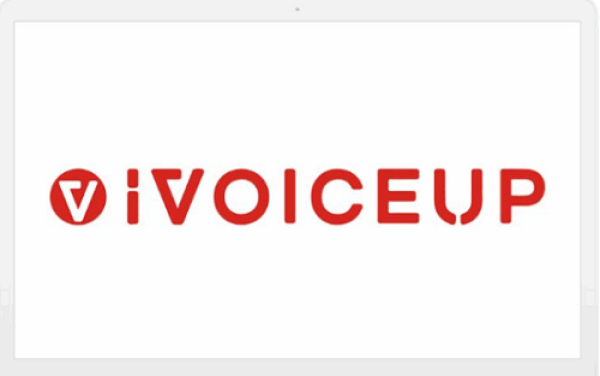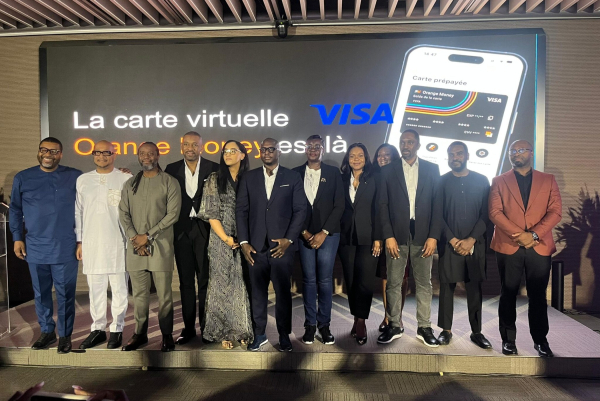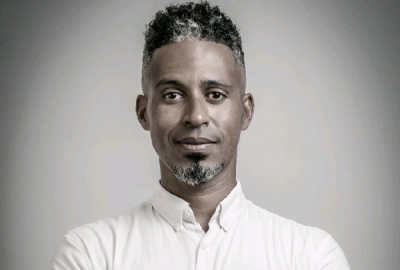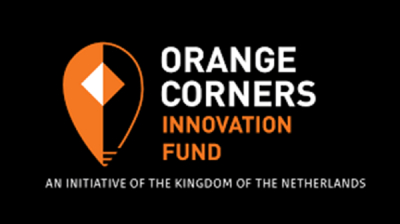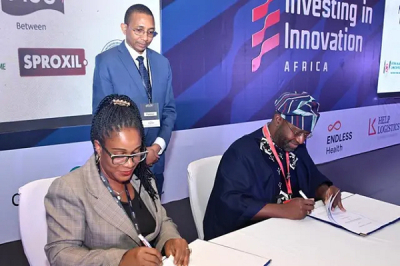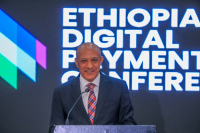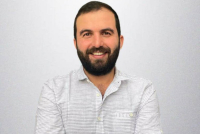Egyptian startup iVoiceUp, which provides AI-powered tools for managing ethics alerts and compliance cases, has raised fresh capital in a funding round led by venture capital firm A15. The company, which helps organisations detect fraud, harassment and other forms of misconduct at an early stage, said it now serves more than one million users and plans to expand further across Egypt, Saudi Arabia and the United Arab Emirates.
- Orange Money Group and Visa signed a strategic partnership to expand access to online payments in Africa and the Middle East.
- The partnership integrates a virtual Visa card into Orange Money’s ecosystem via the Max it app.
- Orange Money operates more than 45 million active accounts across 17 African countries.
Online payments continue to expand rapidly in Africa, driven by the rise of mobile services and e-commerce. However, limited access to secure and interoperable digital payment tools still constrains financial inclusion for a large share of the population.
Orange Money Group and Visa announced on Friday, December 12, in Casablanca that they signed a strategic partnership to facilitate online payments and strengthen financial inclusion across Africa and the Middle East. The collaboration aims to broaden the use of digital financial services as e-commerce and cashless payments accelerate across the region.
Speaking at the announcement, Orange Money Group Chief Executive Officer Thierry Millet said the partnership marks a key milestone in the group’s strategy. “From now on, individuals and entrepreneurs can create their virtual Visa card in seconds and pay online internationally across the entire Visa network. This first step in our strategic partnership brings Orange Money closer to a clear objective: becoming a payment method accepted everywhere, from major e-commerce platforms to local merchants,” he said.
Operationally, the partnership centers on integrating a Visa virtual card directly into the Orange Money ecosystem through the Max it application. Users can generate their card in a few clicks, fund it from their mobile wallet and pay for online purchases on local and international websites. Orange Money initially rolled out the solution in pilot markets such as Botswana, Madagascar and Jordan. The company has since introduced the service in Côte d’Ivoire and plans to expand it to additional countries, including Guinea, Burkina Faso and the Democratic Republic of Congo. Orange Money also plans to launch a physical version of the card to support broader use cases.
The initiative comes as Africa consolidates its position as a global engine of mobile money growth. According to GSMA data, the continent recorded more than one billion registered mobile money accounts in 2024 and accounted for over 70% of global mobile money transactions. At the same time, e-commerce continues to grow, supported by rising internet and smartphone penetration, although limited access to international online payment methods still restrains adoption. By combining Visa’s global acceptance network with Orange Money’s strong local footprint, the partnership aims to address this structural gap.
By leveraging Orange Money’s local presence — with more than 45 million active accounts across 17 African countries — and Visa’s international acceptance network, the partnership could help narrow the digital payments divide. Over time, it aims to integrate millions of users and small businesses into the digital economy by providing payment tools aligned with the requirements of online commerce while reinforcing financial inclusion across the continent.
Samira Njoya
- Yohann Behi founded Blok in 2023 to secure construction-material supply and delivery across African markets.
- Blok operates as a marketplace serving hardware retailers and construction firms with negotiated prices and scheduled delivery.
- Behi also leads IODCI West Africa, a regional construction-material trading and distribution company.
Yohann Behi tackles logistics inefficiencies in Africa’s construction sector by deploying a technology-driven approach designed to secure material supply. His initiative targets a central challenge for African construction sites: the reliability of delivery timelines and material flows.
Yohann Behi is an Ivorian entrepreneur and serves as chief executive officer of Blok, a construction-material procurement marketplace built for African industry players. He co-founded the platform in 2023 with Waly K. N’Diaye, who serves as chief operating officer.
Blok positions itself as a solution for ordering and delivering construction materials that allows hardware retailers and builders to receive supplies on time without logistical disruptions. The platform aggregates a wide range of products and enables hardware store owners to source materials from a single interface at prices the company presents as competitive relative to the market.
The solution also targets construction firms, for which precise delivery windows determine project execution. Blok delivers materials either directly to hardware stores or to construction sites, depending on client needs.
The start-up said most listed products benefit from negotiated pricing that undercuts prevailing market rates. Clients can settle payments in cash upon delivery or through mobile money platforms, including Wave, Orange Money and MTN Money.
Alongside his role at Blok, Yohann Behi serves as chief executive officer of IODCI West Africa, an Ivorian-owned company that specializes in construction-material trading across West Africa and in the distribution of paints and coatings. The company operates franchises in Abidjan and in Cotonou, Benin.
On the academic front, Behi graduated from the École internationale du management responsable 3A in Lyon. He earned a master’s degree in climate change and sustainable trade in 2010 and later obtained a master’s degree in international trade and project management from ISC Paris in 2012.
He launched his professional career in 2010 at Virtual Expo, a French start-up that supports business-to-business project developers, where he worked as a marketing project assistant. In 2012, he joined Bolloré Africa Logistics as account manager for West Africa.
In 2013, he joined PPG, the paints and coatings group, where he held successive roles as business developer, head of commercial sales and exports for West Africa, and key accounts and specifications manager. Between 2020 and 2023, he served as commercial director for sub-Saharan Africa at AGC Glass Europe, a company specializing in the production, processing and distribution of flat glass for the construction sector.
This article was initially published in French by Melchior Koba
Adapted in English by Ange Jason Quenum
- Moussa Nassakou founded Oneigo in 2023 to deliver digital, AI and smart-device solutions across West Africa.
- Oneigo develops payment, artificial intelligence and connected-device products, including MvoPay and Oneigo Alfa.
- Nassakou also leads initiatives in digital skills training, agri-tech and women’s inclusion in technology.
Moussa Nassakou advances digital transformation in West Africa through technology initiatives designed to address practical needs. His work aims to structure an innovation ecosystem that combines digital usage, skills development and entrepreneurial capacity.
Moussa Nassakou is a Togolese graphic designer, web developer, designer and technology entrepreneur. He serves as founder and chief executive officer of Oneigo, a company that specializes in research and development of digital and technological solutions.
Founded in 2023, Oneigo supports organizations in their digital transformation strategies. The company designs and integrates solutions ranging from connected security systems to smart management of residential and professional spaces. It also distributes intelligent home-automation equipment for monitoring, control and optimization of domestic and work environments, with a strong focus on ease of use for end users.
Beyond hardware solutions, Oneigo provides digital transformation consulting services and develops customized digital products. The company also deploys digital skills-building programs, notably through the OneDigital initiative, which aims to train young people for careers in the digital economy.
Among Oneigo’s flagship solutions, MvoPay operates as an all-in-one payment platform that enables transactions through QR codes. The company also developed Oneigo Alfa, an artificial-intelligence-based virtual assistant, as well as Oneigo Watch, a connected smartwatch focused on wellness monitoring and preventive health.
Alongside his entrepreneurial activities, Moussa Nassakou serves as director of the Africa Women Tech Festival, an organization that promotes women’s participation in Africa’s technology ecosystem by encouraging inclusion, innovation and female leadership. He also works as a digital transformation consultant at NunyaLab, an innovation support structure and creative hub.
He also serves as chief executive officer of Storads, an agri-tech start-up he founded in 2017. Through the use of drones equipped with advanced imaging capabilities and an e-commerce platform, the company enables Togolese farmers to improve yields, reduce costs and accelerate market access for their products.
Melchior Koba
The Orange Corners Innovation Fund (OCIF) has opened applications for its GROW programme, targeting South African startups. The fund offers hybrid financing split evenly between a grant and an interest-free loan, with amounts ranging from $12,000 to $59,000. The loan is repayable over 18 months and is followed by support to help startups prepare for further financing and investment. Applications close on Dec. 31.
Last week, at its third “Access to Markets” event, the Investing in Innovation Africa (i3) programme announced three agreements involving African health startups, focused on cervical cancer prevention, malaria control and access to medicines through pharmacies. The deals form part of a broader strategy to scale and finance health technology innovation across Africa.
Völz, an Algerian online travel technology startup, has raised about $5 million from Tell Group and Groupe Industriel Babahoum Algérie to accelerate automation, strengthen its engineering capabilities, and expand its B2B offering. The transaction represents the first successful exit for a publicly backed startup fund in Algeria.
- Ethiopia launches 2026-2030 digital payment strategy and instant system Ethiopay
- Strategy targets inclusion, security, and cross-border retail payment access
- Digital reforms support AfCFTA integration and process $119 billion annually
Ethiopia has launched a national digital payment strategy and a new instant payment system as part of efforts to modernize its financial system and expand access to digital services, particularly among underserved populations.
The National Digital Payment Strategy (NDPS) for 2026-2030 is a five-year roadmap aimed at strengthening interoperability, trust and innovation in payments. It includes plans to facilitate low-value retail cross-border transfers through cards, mobile wallets and digital banking services. The strategy also prioritizes system security, interoperability between providers and consumer protection, while seeking to narrow usage gaps between urban and rural areas and between men and women.
The instant payment system, known as Ethiopay, was developed by national operator EthSwitch. It provides a secure and interoperable infrastructure for instant peer-to-peer transfers, QR code payments, bulk payments and selected cross-border transactions, making it the backbone of Ethiopia’s domestic digital payments system.
The initiatives build on Ethiopia’s broader Digital Ethiopia 2025 and Digital Ethiopia 2030 programmes, which aim to transform economic, administrative and social systems through digital technology. These programmes focus on modernizing public services, improving connectivity and expanding the role of private-sector operators.
Officials say the reforms are already delivering results, with more than 18.5 trillion birr ($119 billion) processed annually through digital platforms. The entry of Safaricom Ethiopia with M-Pesa, the rollout of Ethio Telecom’s Telebirr and the gradual integration of the national digital identification system, Fayda, have contributed to the development of the digital payments ecosystem.
The rollout of the NDPS and Ethiopay is expected to simplify everyday payments, support financial inclusion and streamline commercial transactions. It is also expected to play a strategic role in regional integration by allowing Ethiopia to more quickly benefit from the African Continental Free Trade Area (AfCFTA).
The AfCFTA covers 1.4 billion people and has a combined gross domestic product of $3.4 trillion, according to its Secretary General, Wamkele Mene.
Samira Njoya
-
Knowcap.ai links every generated document to its exact video extract to ensure full traceability.
-
The platform structures meetings and screen activity into decisions, action plans and project documents.
-
Knowcap.ai centralizes project knowledge and acts as an active memory for teams.
Hassan Arslan, an Egyptian-born entrepreneur and business consultant, serves as the founder and CEO of Knowcap.ai, an AI-powered governance platform that converts meetings and on-screen work into verified project documentation.
Knowcap.ai, launched in January 2025, analyzes meetings and observes screen interactions to produce structured summaries, formalized decisions, action plans and project documents. The platform links each generated document to a corresponding video extract. This feature enables users to verify who said what, in which context, and to access the source with a single click.
The platform acts as an active memory for projects. Instead of allowing essential information to disperse into personal notes or fragmented exchanges, Knowcap.ai consolidates all elements into shared, easy-to-consult documents. This centralized structure improves progress tracking, supports the understanding of past decisions and speeds up the onboarding of new team members.
Knowcap.ai reinforces transparency by linking every document to its video proof. Users can independently verify information, which reduces ambiguity and disputes over decisions or statements made during meetings. This mechanism strengthens trust and collective accountability.
Arslan also serves as founder and CEO of SMETools, a solution he launched in 2023 to support the digitalization of small and medium-sized enterprises through collaborative projects. He additionally works as Chief Technology Officer of ariika, a direct-to-consumer furniture and homeware brand he co-founded in 2011.
Arslan holds a bachelor’s degree in commerce from the American University in Cairo, earned in 2013.
This article was initially published in French by Melchior Koba
Adapted in English by Ange Jason Quenum
-
The Health Ministry will deploy a national digital platform to coordinate patient transfers between hospitals.
-
The system will impose a maximum 48-hour response time for urgent transfer requests.
-
The platform integrates with ground and air medical transport services, including the Civil Protection and Air Algérie.
Algeria’s government continues to expand its national digitalization agenda, which now extends to the health sector where needs remain critical. Authorities aim to modernize essential services and improve continuity of care across the country.
The Health Ministry plans to launch a digital platform to organize patient transfers between hospitals. Health Minister Mohamed Seddik Aït Messaoudene announced the initiative on Thursday, 11 December, during a presentation before the Council of the Nation. The platform seeks to streamline a process that remains complex, especially in southern and High Plateaus provinces where access to specialized care remains limited.
The system will establish a fully digital workflow for filing, tracking and validating transfer requests, which are currently processed through multiple uncoordinated channels. The minister said these operations follow a strict regulatory framework requiring each request to be reviewed within reasonable timelines. He added that urgent cases must receive “a maximum response time of 48 hours.”
This project forms part of Algeria’s 2030 national digital transformation strategy, which prioritizes the modernization of public services. It comes as authorities seek to improve continuity of care across a vast territory with significant geographic disparities. Southern provinces, which represent more than 80% of Algeria’s land area, continue to face limited access to several medical specialties, making transfers essential for cases requiring advanced expertise.
The platform will automate several key steps, from registering requests to verifying medical criteria and transmitting files to the teams responsible for evaluation. It will also track compliance with response deadlines and facilitate the activation of emergency protocols when needed.
The system will connect to all medical transport services, including ground ambulances and air evacuation units operated by the Civil Protection, Air Algérie, and, in the most critical situations, the Algerian Air Force.
The transfer-management platform aligns with Algeria’s broader effort to digitize its health system. The government is deploying the Electronic Medical Record (EMR), establishing the National Agency for Health Digitalization (ANNS), expanding telemedicine, and adopting new national cloud solutions for hosting health data.
This article was initially published in French by Samira Njoya
Adapted in English by Ange Jason Quenum
More...
-
Positeams, founded in 2020, enables companies to track employee experience, motivation and needs through regular and customizable surveys.
-
The platform provides data-driven insights, including trend analyses, word clouds and anonymous chat feedback, to guide HR and leadership decisions.
-
Positeams also recommends action plans and training content to help managers implement organisational change.
Companies face a growing need to understand the real experience of their teams. Samir Tamri uses technology to provide a precise and practical response to this challenge.
Samir Tamri, a Moroccan computer scientist and tech entrepreneur, is the founder of Positeams, an online platform that helps companies understand their employees and strengthen daily engagement through a simple and accessible tool.
Tamri launched Positeams in 2020. The platform allows companies to deploy regular or customized surveys to track employee experience, motivation and needs over time. Its purpose is to offer management and HR departments a clear and continuous view of workforce sentiment without complex procedures.
Positeams relies on a rigorously developed set of questions designed to deliver reliable feedback across multiple aspects of professional life. The platform analyzes responses to identify significant trends and provide companies with actionable interpretation.
The company also offers feedback analyses that highlight recurring themes, including through word clouds that display the most frequently cited topics. An anonymous chat tool enables employees to express themselves freely, ensuring continuous and authentic internal listening.
Beyond collecting feedback, Positeams recommends concrete actions to address identified needs. The platform allows companies to structure action plans, monitor progress and access online training resources designed to support managers in driving organizational change.
Alongside Positeams, Samir Tamri serves as founder and CEO of North African Game Distributors (NAGD). Launched in 2008, the company operates in the distribution, development and publishing of video games and is considered a leading player in Morocco’s touchscreen gaming market.
Tamri created his first company, Arabium.com, in 2001 as a community portal for Arab singles living in the United States.
He holds a bachelor’s degree in computer science from Drexel University, obtained in 1999. He began his career in 1997 at Unisys as a software engineer.
Between 2001 and 2015, he worked as a senior software engineer at AMI Entertainment Networks, which specializes in innovative entertainment solutions. From 2017 to 2018, he served as chief technology officer at Taxi Rouge, a Moroccan e-mobility start-up.
This article was initially published in French by Melchior Koba
Adapted in English by Ange Jason Quenum
Villgro Africa, in partnership with The Fred Hollows Foundation, is accepting applications in Kenya for the Eye Health Innovation Accelerator 2026. The programme targets Sub-Saharan African startups developing technology solutions to improve access to eye care.
Selected startups will receive strategic support and may secure between $100,000 and $250,000 in seed funding.
Tanzanian fintech NALA has received approval from the Bank of Ghana to launch its money transfer services, formalized through a Letter of No Objection and a strategic partnership with local provider BigPay. The collaboration will enable direct transfers to bank accounts and mobile wallets, significantly reducing costs and processing times.
The National Science and Engineering Infrastructure Agency (NSEIA) launched its FutureMakers programme on Thursday, Dec. 11. Aimed at children aged five to 16, the initiative seeks to boost innovation and core skills in science, technology, engineering and mathematics (STEM).
The programme will run from December 2025 to February 2026 and will select 60 participants from the country’s six geopolitical zones. Top performers will be eligible for prizes of up to 5 million naira (about $3,500) and scholarships.


